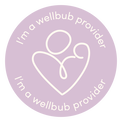AuthorJanel Briggs Categories
All
|
Back to Blog
Most of us are creatures of habit.
We do the same things day in and day out. We think the same thoughts, go through the same motions, and follow the same routines. And sometimes, this might not be a good thing. Every once in a while, we might notice that we’ve slipped into some not-so-good habits that we want to eliminate or change. We want to get into some good habits instead. Once identified, we look around and have a think about the new habits we want to form instead. We do the research and find the program. We invest the time, money, effort, and resources into creating, getting into, and keeping these new habits. We’re committed. All in. And then… BAM - Self-sabotage. Enter resentment, fear, and guilt We resent the changes and sacrifices and steps we need to take. We fear messing it up, failing, and doing it all wrong. We feel guilty for not doing it or trying hard enough. For quitting or not seeing it through (again). We literally, whether actively or passively, take steps to prevent ourselves from reaching our goal. Of incorporating the new habit we know we want. Is any of this helpful? No. Are any of these conscious actions and decisions? Are we actively preventing ourselves from making these changes? Probably not. Instead it’s more likely that they’re passive and unconscious. And the unconscious mind can be a tricky and powerful thing. Often running on autopilot, our unconscious mind wants to keep us safe, comfortable, and familiar. Changing habits is a shakeup of all three of these which is why we end up (un)consciously sabotaging ourselves and the very habit we’re trying to change. So how do we stop this? How do we stop self-sabotaging the good habits we want to adopt? Well here are 5 ways to get you going. 1. Identify Identify the habit you want to drop, alter, change, or incorporate. Is it getting up earlier? Setting clearer boundaries? Decreasing screen time? Whatever it is, be really clear on identifying the good habit and changes you want to make. 2. Resonate In order to prevent self-sabotage from even creeping in, you need to really resonate with the habit itself, and most importantly, the why. Why are you making these changes? Why is this new habit important to you? If you’re doing it from a place of comparing or wanting to look, feel, or be like someone else, then it’s not going to work. Your new habits need to resonate and sit so deeply within. It needs to come from a place of love and acceptance of yourself and your reasons for change. 3. Be Patient Shifting habits takes time. The habits you’re wanting to change have probably taken you months and even years to develop, and then months and years of practice. So let’s be realistic, shifting them asap is just not going to happen. You’re going to have to do the work. You’re going to have to feel uncomfortable. And no matter what anyone says, there is no magic pill, program, course, or hack. You simply need to be patient and… 4. Have Compassion Let’s be honest. You’re probably going to mess up. You’re probably going to skip a day, fall off the wagon, want to give it all up. But don’t! Instead, show yourself compassion. When you were little, you didn’t go from laying on the floor to walking in one minute. You learned to crawl, stand, balance, fall, and get back up again. Are you upset or hard on yourself because you didn’t get it straight away? Of course not. Remember little you and show yourself compassion. 5. Ignore Ignore the marketers, the doubters, and the haters. Marketers are trained and paid to know our pain points, the things we want to achieve, and the ways to sell us (and profit from) fixing it. People will doubt your abilities and perhaps even hate when you “win” or “succeed”. What they think doesn’t matter though. Why? Because you’ve identified, resonated, been patient, and showed yourself compassion all the way, and know why you’re doing it. Change isn’t easy. And creating good habits without self-sabotage can be even harder. So whether you’re at the beginning, middle, or end of developing your new habits, be sure to use your conscious mind. Be active and aware of what you’re feeling and doing. Write it out. Think it through. Talk to a supportive friend or coach. Realise that change is uncomfortable. Accept not everyday is going to be perfect. Say no to the negative mental chatter. Silence your inner critic. And remember your why. Everything I do is to help women like you thrive, so if you need support or guidance, I’ve got a few ways to help with this. My Learn to Thrive my morning journal gets you setting your day up to succeed by helping you slowly and consistently incorporate good habits. If you’re looking for awesome free value, download my 150 Positive Affirmations (the Affirmations are especially helpful in countering any self-sabotaging!).
0 Comments
read more
Your comment will be posted after it is approved.
Leave a Reply. |
|
Stay Connected
Subscribe and be the first to access new blog content news & updates. |

 RSS Feed
RSS Feed





